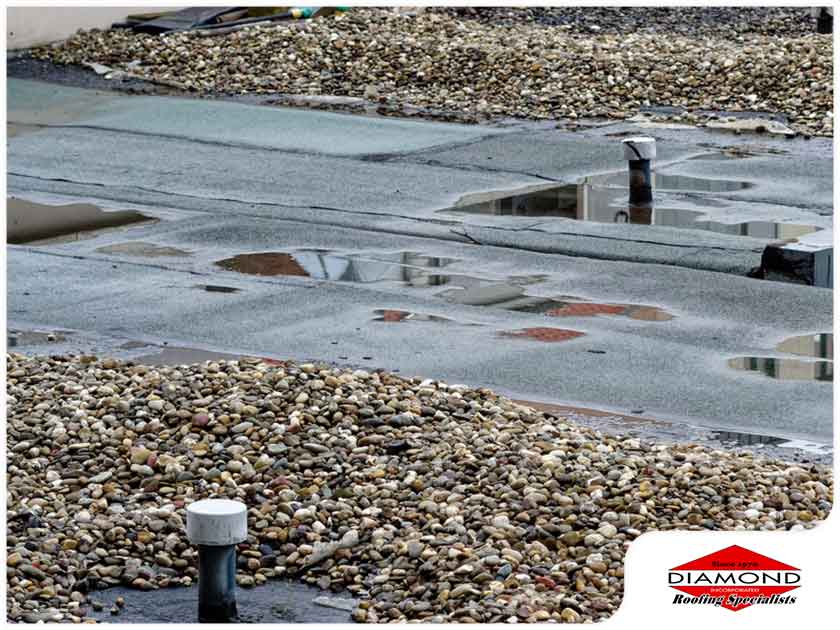Rubber flat roofing systems, such as EPDM (ethylene propylene diene terpolymer) and modified bitumen, are popular choices for commercial properties due to their cost-effectiveness and durability. However, these roofing types are not without their challenges. One common issue commercial building owners face is shrinkage, a problem that, if left untreated, can lead to serious structural damage.

While modern manufacturing techniques have improved the stability of roofing membranes, shrinkage in EPDM and modified bitumen roofing systems is still a relevant concern today. It may not always lead to immediate roof failure, but it can compromise flashings at curbs, seams, and parapet walls. This weakens the roof’s defenses against water intrusion and reduces its long-term effectiveness.
What Causes Roof Membrane Shrinkage?
Shrinkage occurs when roofing membranes contract due to prolonged exposure to UV rays and extreme temperature fluctuations. Over time, this tension pulls the membrane away from its anchors and flashings, leaving gaps where water can enter. Improper installation or inadequate protection from the sun only accelerates this issue.
Preventing Shrinkage in EPDM and Modified Bitumen Roofs
The most effective way to prevent shrinkage is to ensure the roofing system is properly installed by a qualified contractor. For EPDM roofs, a layer of ballast (usually stone) is often used to reduce UV exposure and limit heat absorption. This protective layer helps preserve membrane elasticity over time.
In the case of modified bitumen roofs, professional installers may stagger the application process and allow the material time to cool between layers. This careful technique helps the roofing material adapt to temperature changes and reduces the risk of premature shrinkage.
How to Address Shrinkage Issues on Commercial Roofs
If shrinkage has already set in, focus on repairing the most vulnerable components — the roof flashings. These elements seal joints around penetrations such as vents, HVAC units, and wall transitions. Replace any flashings that have cracked or pulled away from the membrane. In more advanced cases, contractors may cut and realign the field sheets to relieve tension and install new layers that accommodate natural thermal movement.
Why You Should Contact a Professional Roofing Contractor
When it comes to shrinkage-related roof damage, timing is everything. The longer the issue is left untreated, the greater the potential for leaks and long-term deterioration. Don’t risk your building’s safety and efficiency. Seek help from experienced professionals who specialize in commercial flat roofing systems.
Expert Help for Commercial Roofing in Bristol, CT
At Diamond Roofing Specialists, Inc., we specialize in commercial flat roof shrinkage repair in Bristol, CT. Our team is trained to inspect, identify, and resolve shrinkage issues before they escalate into larger problems. Call us today at (203) 754-7884 or fill out our online form to schedule an inspection or request a free estimate.
